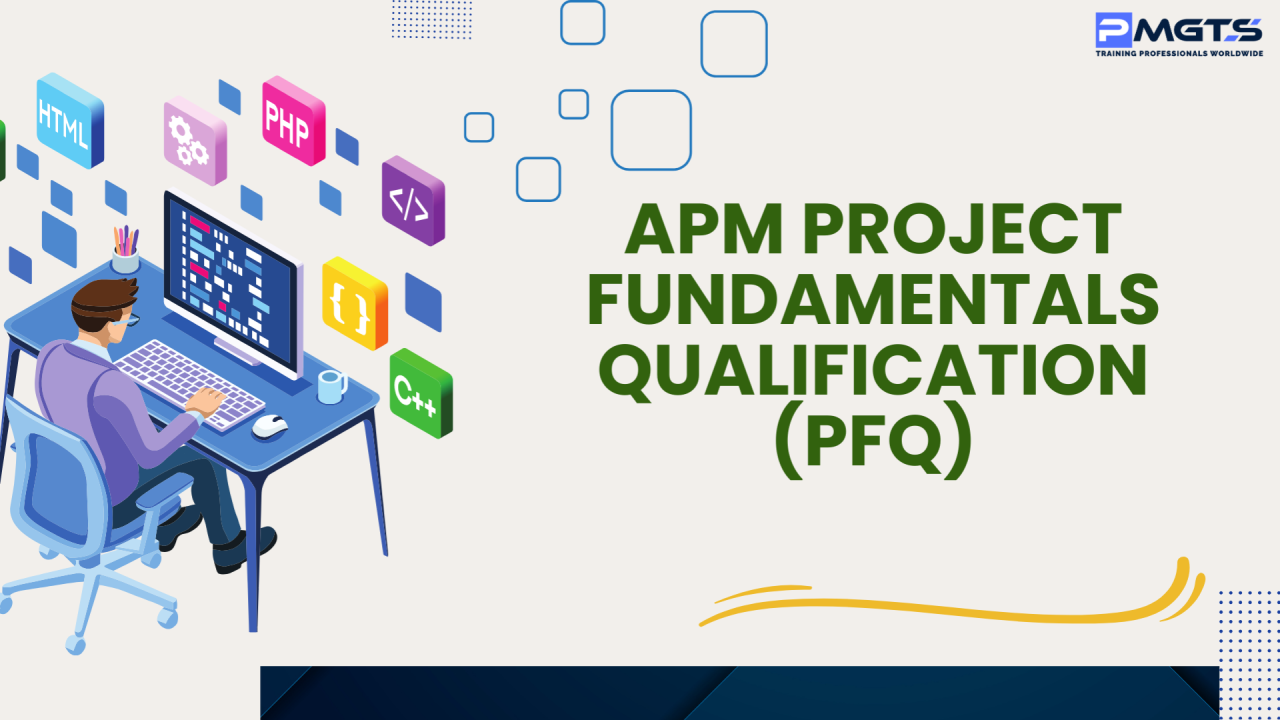APM Project Fundamentals Qualification (PFQ)
5 Modules
20 Lessons
Beginner to Intermediate
Mastering Project Fundamentals for Effective Management

Course Summary
The APM Project Fundamentals Qualification (PFQ) course offers a comprehensive introduction to the principles and techniques of project management. Designed to equip participants with a solid foundation in project management concepts, this course emphasizes practical skills and knowledge essential for managing projects successfully. Through a mix of theoretical learning and practical exercises, participants will explore the core components of project management, including planning, executing, monitoring, and closing projects. The curriculum is aligned with the Association for Project Management (APM) standards, ensuring learners are well-prepared to implement best practices in a variety of project environments. Participants will delve into the key elements of project management, such as understanding the project lifecycle, effective communication strategies, and risk management. The course also covers essential tools and techniques that aid in project documentation and stakeholder management. By the end of this course, attendees will have a clear understanding of how to apply project management principles to deliver projects on time, within budget, and to the required quality standards. The APM PFQ is an ideal stepping stone for professionals who are new to project management or those looking to formalize their project management skills with a recognized qualification. It provides a thorough overview of the fundamentals, preparing participants for more advanced practices in project management.
Course duration:
Five days (In-Person and Online Options available)
Course Overview:
What you'll get:
Interactive Learning: Engaging sessions with real-world examples and live demonstrations.
Practical Focus: Hands-on labs to apply theoretical concepts in real-world scenarios.
Collaborative Activities: Group exercises and discussions to enhance understanding.
Course Curriculum
Day 1
Day 2
Project Planning and Scheduling •Fundamentals of project planning. •Techniques for effective project scheduling.
•Utilizing Gantt charts and critical path methods.
•Resource allocation and optimization. •Setting realistic timelines and milestones.
Day 3
Risk Management and Quality Control •Identifying potential project risks. •Strategies for risk mitigation and management.
•Principles of quality management in projects.
•Tools for quality control and assurance. •Developing a risk management plan.
Day 4
Project Execution and Control
•Effective communication within the project team.
•Techniques for monitoring project progress.
•Managing changes within the project scope.
•Tools for project tracking and reporting. •Ensuring project deliverables meet the required standards.
Day 5

Prerequisites
• There are no formal prerequisites for this course.
• A general understanding of the working environment and an interest in developing project management skills are beneficial.
Delivery Method
•In-Person Classroom or Virtual Instructor-Led (depending on your organization’s preference)
•Combination of lectures, interactive workshops, case studies, and group discussions
•Real-time feedback and personalized guidance from the instructor
•Access to digital course materials, tools, and resources after the course concludes
Certificate
Participants will receive a certificate upon successful completion of the workshop, validating their understanding and proficiency in integrating sustainability into project management practices.
